606 New Breed called Breeders Needed
BETTERING THE BREEDS
by David Hancock
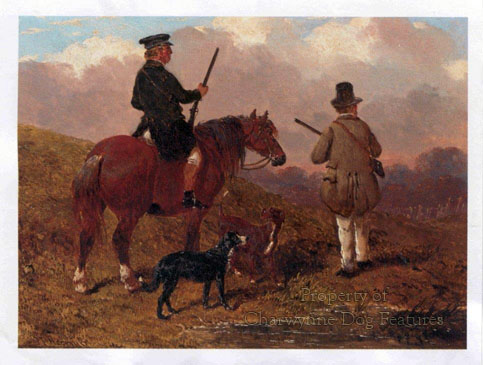
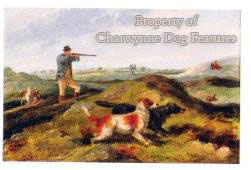 Is every pediqree breed so perfect that it cannot be improved? Dog breeding surely is the relentless pursuit of excellence not the waving about of papers festooned with past champions. In every past century it was always a matter of performance not purity of blood. We ignore functional capability at our peril. Yet again and again I hear pedigree dog breeders whinge: "I don't want my terriers to go to ground" or "But I don't expect my setters to last a long day on a grouse moor". Shame on them; if their dogs are not capable of doing so, whether they are needed to or not, then they don't belong in that breed. I very much admire the lurcher breeders who try hard all their lives to produce top class hunting dogs and the working terrier devotees who breed for working prowess and distinct type, without ever registering their stock. This is the background all our terrier breeds come from; they were created for work!
Is every pediqree breed so perfect that it cannot be improved? Dog breeding surely is the relentless pursuit of excellence not the waving about of papers festooned with past champions. In every past century it was always a matter of performance not purity of blood. We ignore functional capability at our peril. Yet again and again I hear pedigree dog breeders whinge: "I don't want my terriers to go to ground" or "But I don't expect my setters to last a long day on a grouse moor". Shame on them; if their dogs are not capable of doing so, whether they are needed to or not, then they don't belong in that breed. I very much admire the lurcher breeders who try hard all their lives to produce top class hunting dogs and the working terrier devotees who breed for working prowess and distinct type, without ever registering their stock. This is the background all our terrier breeds come from; they were created for work!
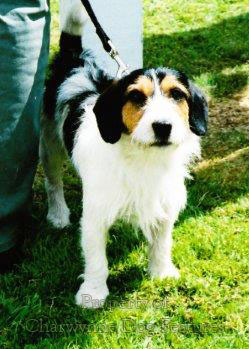
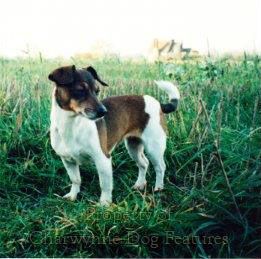 Leading geneticist Steve Jones stated last year, with regard to pedigree dog breeding, that there will be a 'universe of suffering' ahead with continued inbreeding. Another geneticist Bruce Cattanach, himself a dog-breeder, has written: '...inbreeding has been ingrained in dog breeder psyche from the beginning and is hard to break...' He went on to state that outcrossing to other related breeds may be necessary. Our sporting ancestors found this more than 'necessary'.
Leading geneticist Steve Jones stated last year, with regard to pedigree dog breeding, that there will be a 'universe of suffering' ahead with continued inbreeding. Another geneticist Bruce Cattanach, himself a dog-breeder, has written: '...inbreeding has been ingrained in dog breeder psyche from the beginning and is hard to break...' He went on to state that outcrossing to other related breeds may be necessary. Our sporting ancestors found this more than 'necessary'.
All our sporting breeds of dog were produced by master breeders in the pursuit of excellence. They didn't expect the perpetual recycling of old genes to produce a magic answer. In his masterly The Pursuit of Wild Animals for Sport of 1856, 'Stonehenge' recommended an outcross to the Greyhound for the Pointer, a cross of the 'regular Scotch terrier and the old English Beagle' for retrieving in heather and a mix of the St John's Newfoundland and the setter for retrieving generally. The great between-the-wars sportsman James Wentworth Day found his best gundog ever in a Harrier-Retriever blend. Are today's gundog breeds incapable of improvement?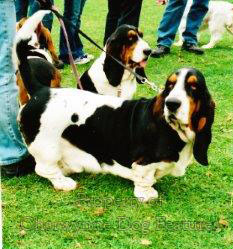
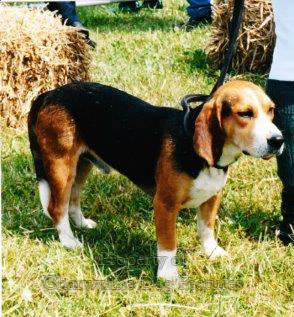
Is it wise for our breed lists to be cast in tablets of stone? Are the gene pools of the accepted pedigree breeds not capable of improvement? The hunting Basset Hound people have much more open minds - their outcross to the Harrier has resulted in a far healthier hound. Are we breedinq doqs for their written pedigree or their health and wellbeing? I wonder what the great gundog breeder Korthals would make of today's closed gene pools; he crossbred until he produced a pointing griffon of remarkable prowess. My personal views on breeding one breed of dog with a different one are quite clear: if a pedigree breed is retaining type and temperament, virility and vigour, then there is simply no need to introduce outside blood. But if say the Field Spaniel could gain considerably from an infusion of Springer blood, as happened some years ago, then I would support it.
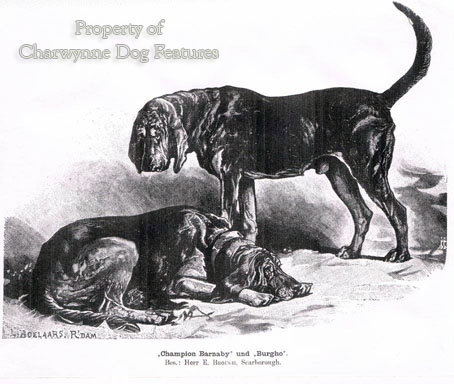
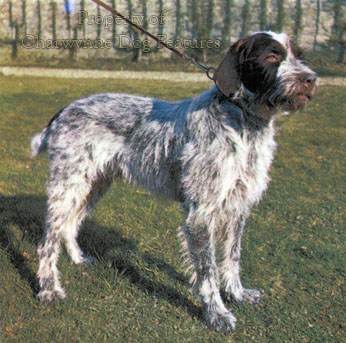
It is perfectly understandable, of course, for those favouring one particular breed to want to safeguard that breed, protect it from 'mongrelisation' and strive to prevent misuse of that breed by unsavoury people. But if that breed has serious inheritable defects or inbred faults difficult to breed out then an outcross to better blood makes a great deal of sense. The show Bloodhound would undoubtedly benefit from such a course - just as the renowned Bloodhound breeder Brough advocated in each fifth generation. The soundest healthiest Clumber Spaniel I have ever seen came from a Clumber-Springer cross; surely the health of our dogs comes before pedigree.
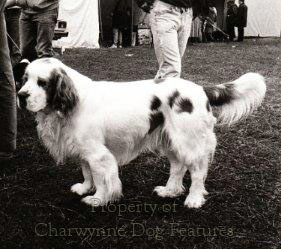

If pedigree stock owners in the past had refused a mating to a different breed, then the Irish Wolfhound would never have been re-created, the Mastiff would be a very different breed today and the Bullmastiff simply wouldn't exist! I ask purebred dog breeders two key questions: What collective action is being taken to breed out inherited diseases in their breed? And two, what breeding programmes are being promoted to counter the appalling movement so prevalent in the breed or to correct undesirable temperament whenever it crops up in the breed. Surely any breed fancier worried about the future of their breed would be addressing such problems ahead of all others.
The twentieth century will be remembered in the world of dogs as a century in which we stopped thinking and blindly perpetuated pedigree stock 'warts and all'. I do hope it doesn't take shock TV programmes or the welfare legislators to bring us back to common sense and genuine care for subject creatures. It is immoral to breed from inferior stock just because it is pure-bred. It makes no sense at all to expect tiny gene pools in so many breeds to go on producing high quality dogs. The guide dogs for the blind people are crossing the retriever breeds to produce a more suitable dog for their requirements. Our ancestors, who produced the splendid breeds of dog which we now enjoy, would admire such an activity. They sought good dogs ahead of good pedigrees.
But all this is still too radical for the pedigree dog breeder of today; it is the time of the conformist not the individual who is not afraid to stand alone. Time for a new breed - of breeders!